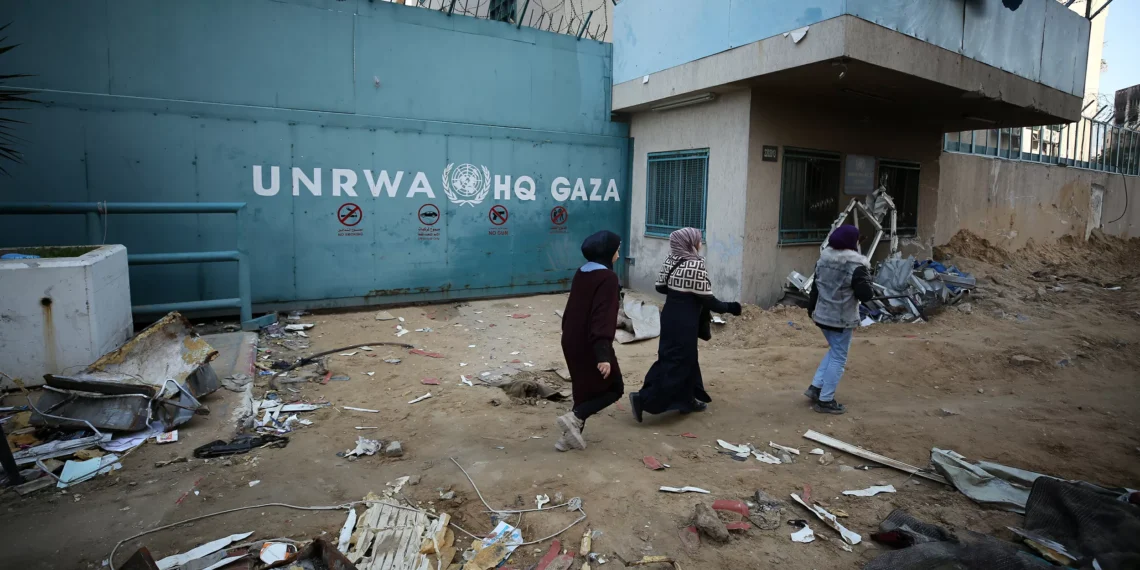In a recent move, the United States Congress passed a one-year ban on funding for the United Nations Relief and Works Agency for Palestine Refugees (UNRWA). This decision comes at a time when several Western countries have resumed their support for the agency, which provides vital aid to Palestinian refugees. Despite the flimsy allegations made against UNRWA, the U.S. has doubled down on its efforts to defund the agency, further exacerbating the already dire situation for Palestinian refugees.
The U.S. has long been a major contributor to UNRWA, providing over $350 million in funding annually. However, in 2018, the Trump administration announced its decision to cut all funding to the agency, citing concerns over its alleged mismanagement and anti-Israel bias. This move was met with widespread criticism and condemnation from the international community, as well as human rights organizations.
Despite the change in administration, the U.S. has continued its policy of defunding UNRWA. The recent ban on funding for the agency is a clear indication of the U.S. government’s disregard for the well-being of Palestinian refugees. This decision not only goes against the principles of humanitarian aid but also undermines the U.S.’s role as a global leader in promoting peace and stability.
The allegations made against UNRWA are baseless and lack any substantial evidence. The agency has been providing essential services to Palestinian refugees for over 70 years, including education, healthcare, and social services. It has also played a crucial role in providing emergency assistance during times of crisis, such as the recent conflict in Gaza. To suggest that UNRWA is misusing funds or promoting anti-Israel sentiments is not only unfounded but also a deliberate attempt to discredit the agency and its work.
Moreover, the decision to defund UNRWA will have a devastating impact on the lives of Palestinian refugees. With over 5 million registered refugees, UNRWA is the primary source of support for many families who have been displaced and marginalized for generations. Cutting off funding will only worsen their already dire living conditions and leave them without access to basic necessities.
The U.S.’s stance on UNRWA is not only harmful to Palestinian refugees but also counterproductive to the goal of achieving peace in the region. By defunding the agency, the U.S. is essentially abandoning its responsibility to support a just and lasting solution to the Israeli-Palestinian conflict. This decision sends a message that the U.S. is not interested in finding a resolution and is willing to turn a blind eye to the suffering of Palestinian refugees.
In contrast, several Western countries, including Germany, France, and Canada, have resumed their funding for UNRWA, recognizing the crucial role the agency plays in providing aid to Palestinian refugees. This move is a testament to their commitment to upholding humanitarian values and promoting stability in the region. It also highlights the isolation of the U.S. in its decision to defund UNRWA.
It is time for the U.S. to reconsider its stance on UNRWA and resume its support for the agency. The U.S. has a moral obligation to stand with the most vulnerable and marginalized communities, and Palestinian refugees are no exception. By defunding UNRWA, the U.S. is not only failing to fulfill its humanitarian duties but also damaging its reputation as a global leader.
In conclusion, the recent ban on UNRWA funding by the U.S. Congress is a misguided and harmful decision. It not only undermines the vital work of the agency but also disregards the plight of Palestinian refugees. The U.S. must reverse its policy and resume its support for UNRWA to uphold its values and promote peace in the region. As the saying goes, “charity begins at home,” and it is time for the U.S. to show compassion and support for those in need, regardless of their nationality or religion.







